Related Research Articles

The Estonian Evangelical Lutheran Church is a Lutheran church in Estonia. EELC is member of the Lutheran World Federation and belongs to the Community of Protestant Churches in Europe. It is also a member of the Porvoo Communion, putting it in full communion with the Church of England and other Anglican churches in Europe.
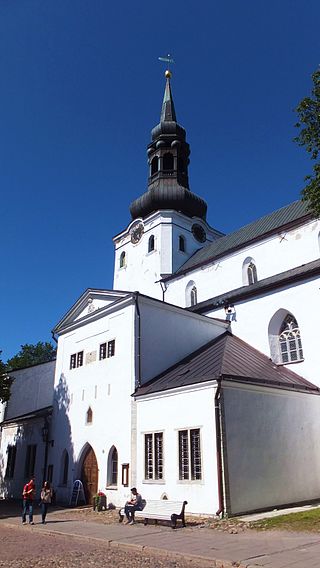
St. Mary's Cathedral, Tallinn is a cathedral church located on Toompea Hill in Tallinn, Estonia. Originally established by Danes in the 13th century, it is the oldest church in Tallinn and mainland Estonia. It is also the only building in Toompea which survived a 17th-century fire.

Andres Põder is an Estonian clergyman, bishop emeritus and the former archbishop of Tallinn and primate of the Evangelical Lutheran Church of Estonia (EELK) from 2005–2014. Põder is the current president of Estonian Council of Churches since 2013.
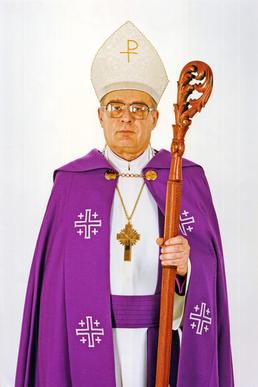
Jaan Kiivit Jr. was the Archbishop of the Estonian Evangelical Lutheran Church from 1994 until 2005.
Kuno Pajula was an Estonian prelate who served as the Archbishop of Tallinn and Primate of the Estonian Evangelical Lutheran Church between 1987 and 1994.

The Estonian Orthodox Church of the Moscow Patriarchate is a semi-autonomous church in the canonical jurisdiction of the Patriarchate of Moscow whose primate is appointed by the Holy Synod of the latter.

Platon, born Paul Kulbusch was an Estonian bishop and the first Orthodox saint of Estonian ethnicity.

The Evangelical Lutheran Church of Ingria is a Lutheran church in Russia. It is the second largest Lutheran church in Russia, with 90 congregations and 15,000 members, and is active mostly in Ingria and Karelia.

Urmas Viilma is an Estonian prelate and current archbishop of Tallinn and subsequently Primate of the Estonian Evangelical Lutheran Church.
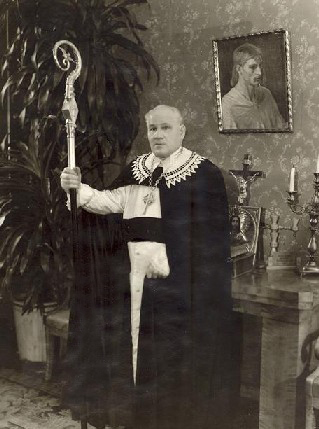
Gustavs Tūrs was a Latvian prelate of the Evangelical Lutheran Church of Latvia and Archbishop of Riga from 1948 to 1968.
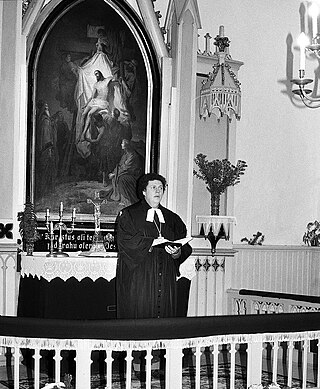
Illar Hallaste was an Estonian cleric, politician, lawyer, and businessman, most notable for being a voter for the Estonian restoration of Independence.

Jakob Kukk was an Estonian prelate who served as the first bishop of the independent Estonian Evangelical Lutheran Church.

Hugo Bernhard Rahamägi was a prominent Estonian prelate and politician who served as Minister for Education in the Estonian government between 1924 and 1925 and later as Bishop of Tallinn and Primate of the Estonian Evangelical Lutheran Church from 1934 till 1939.
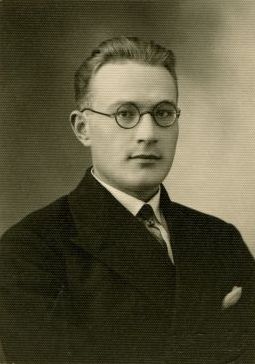
Jaan Kiivit Senior was an Estonian prelate who was the Archbishop of Tallinn and the first primate of the Estonian Evangelical Lutheran Church from 1949 and 1967, after the break away from the exiled Estonian Evangelium's Lutheran Church.
Alfred Tooming was an Estonian prelate who served as the Archbishop of Tallinn and Primate of the Estonian Evangelical Lutheran Church between 1967 and 1977.

Einar Soone is an Estonian prelate who served as suffragan bishop to the Archbishop of Tallinn and the first Bishop of the Diocese of the Northern Region in Estonia.

Joel Luhamets is an Estonian Lutheran prelate who is the current bishop of the Southern Region whose seat is in Tartu, Estonia.

Tiit Salumäe is an Estonian prelate who is the current bishop of the Western and Northern Region in Estonia, whose episcopal seat is in Haapsalu.
Estonian Methodist Church is a Methodist church organisation in Estonia. Until 1 July 2023, when it severed its ties to the United Methodist Church, it belonged regionally to the Northern Europe and Eurasia Central Conference of the United Methodist Church and to the United Methodist Church Nordic and Baltic Episcopal Area. On the world level it is a member of the World Methodist Council.

Max Kaur is an Estonian politician. He is a member of the Centre Party. He was mayor of Mustvee 2013–2017. Since 2018 he is a Jõhvi municipality vice-governor. Since 2019 he is a Mayor of Jõhvi.
References
- ↑ "Sada aastat peapiiskop Edgar Hargi sünnist", Estonian Evangelical Lutheran Church . Retrieved on 31 May 2019.
- ↑ "Piiskopiamet Eesti kirikus", Estonian Evangelical Lutheran Church . Retrieved on 31 May 2019.